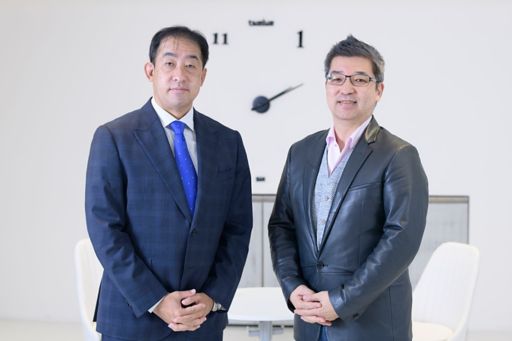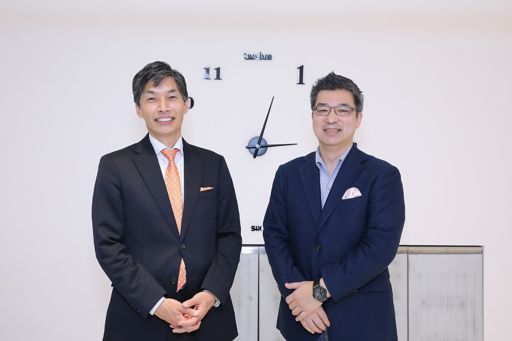SDGs (Sustainable Development Goals) are of interest to many people. In particular, initiatives to address food loss are attracting attention as a broadly relevant issue. It is of course a well-known fact that the COVID-19 pandemic has made food loss solutions a more pressing issue. On the other hand, it goes without saying that "working styles" and "respect for diversity" are also important themes of the SDGs.
How can digital technology contribute to this transition to a sustainable society and how will it pave the way for the post-COVID-19 era? In this article, we will introduce the in-depth discussions conducted on these themes between Mitsuki Bun, CEO of Losszero Co., Ltd., and Masayuki Chatani of KPMG Ignition Tokyo.
Contents
- Changing the Food Loss Situation in Japan! Losszero’s Initiatives
- What Inspired Me to Start a Sustainable Business was Hair Accessories
- What Diversity Brings to Corporate Management
- What We Realize from Being Diverse May Lead to Business Opportunities
- Reducing Business Risks by Utilizing Digital Technology
- Environment that Boosts Role Models Is Necessary to Make the Most of Diverse Human Resources
- Profile of Interviewee
Changing the Food Loss Situation in Japan! Losszero’s Initiatives
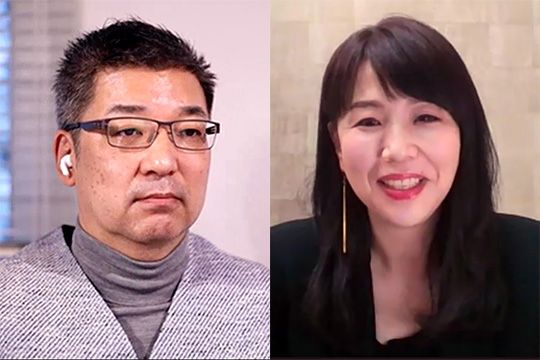
(Masayuki Chatani, Representative Director & CEO of KPMG Ignition Tokyo and CDO of KPMG Japan (left), Mitsuki Bun, Founder and CEO, Losszero Co., Ltd. (right) ) *Professional affiliation and official position in the article are at the time of publication.
Chatani: Losszero buys and sells food that still has time left until the expiry date or is about to be discarded because it’s considered substandard in some small way. I met Mitsuki Bun, CEO of Losszero, at one of the meetings I attended and became interested in what they’re doing, thinking that “it will not just be a discount sale, but an interesting initiative utilizing technology.”
The other day, I ordered some "Re:You chocolate" from Losszero as a thank-you gift of the hometown tax payment to Kobe City, Hyogo Prefecture. It was delicious and I wanted to hear more about the details, so I set up this discussion.
Bun: Thank you very much. “Re:You Chocolate” is Losszero’s original product made by purchasing confectionery ingredients that were supposed to become high-end chocolates.
Japan boasts one of the largest chocolate markets in the world, but because makers are constantly trying to purchase new confectionery ingredients, there are often ingredients that are disregarded and thrown away even though they have more than six months of shelf life left. The method of adding new value by breathing life into them and remaking them is called "upcycling” and “Re:You Chocolate” is indeed such a product.
Recently, many people have been interested in SDGs and ethical consumption including the issue of food loss, but I feel that people tend to focus more on poverty and labor issues in exporting countries.
However, in reality, there are problems that need to be solved under our feet, in other words, in Japan. That’s why Losszero thought of solving this problem by making and selling “Re:You Chocolate” using surplus materials in Japan. In addition to the thank-you gift of the hometown tax payment, we are also selling them based on the so-called D2C (Direct to Consumer) method.
The new Re:You product for January 2022 is "Kesennuma Minato Strawberry" made with out-of-spec strawberries from strawberry farmers in Kesennuma City. It was made to support the disaster area and reduce food loss. It has been very well received and we have fortunately received orders not only through D2C but also from corporations for several hundred units.
What Inspired Me to Start a Sustainable Business was Hair Accessories
Chatani: In addition to “Re:You Chocolate,” Losszero is selling a variety of food products to reduce food loss. What inspired you to become interested in solving such social issues and how did you decide to turn it into a business?
Bun: Before starting the Losszero business, I had set up an online store named Little Moon and was making and selling hair accessories.
Hair accessories in Japan are broad-ranging, from fashion items that can be enjoyed casually at low prices to those that are expensive. However, they are also items that people often throw away because "they cut their hair and no longer need it" or "it no longer suits their taste.”
However, when we turn our attention to Southeast Asia and other foreign countries, the situation is a little different.
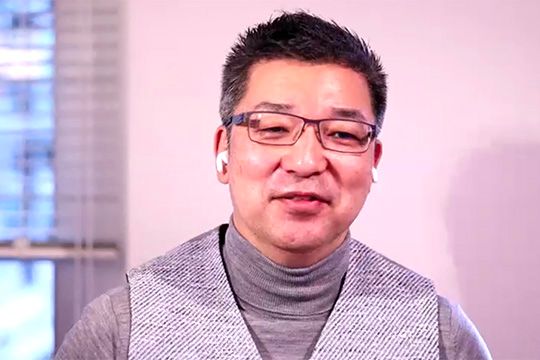

I had an opportunity to go on a trip to Laos and Cambodia through a scholarship I had been providing to girls in Laos, and I brought a suitcase full of hair accessories that were no longer in use in Japan. I had heard that there were many people there who were unable to enjoy dressing up, so I thought I would give them some accessories.
The children who received them were very happy and I felt that it was possible to “lift their spirits and enrich their days with fashion.” The next day, however, the parents took those hair accessories away from their children and sold them on the street. Seeing this, I frankly reflected that “it’s a sin to be unaware of the income level of the country I’m visiting.”
Nevertheless, I knew that hair accessories can be very useful for raising women's spirits. So, I thought about what I could do. It wouldn’t be a good practice to make the same kind of donation to show that "Little Moon has done such a good thing" and, if anything, I didn’t think it was sustainable.
So, what could I do to help? I thought about this a lot and called on people who buy hair accessories from Little Moon to collect their unused hair accessories. I set up a system of bringing the collected accessories to the local market, holding sales events with young people from NGOs who were undergoing commercial training, and using the proceeds for scholarships and vocational training schools.
I thought that we should be able to support both men and women of all ages with this system.
Through such efforts, I thought, “If it’s possible to create a sustainable system and support children who are poor and without access to education with something as minor as hair accessories, we may be able to confront a larger social issue.” I wondered, “What is being wasted the most in Japan?” and decided to take on the challenge of solving the major problem of food loss in Japan by using e-commerce, which is my specialty.
Chatani: Even if it’s a good thing, it’s difficult to continue unless we can create a sustainable system.
Bun: You’re right. It was around 2010 that we started working on supporting developing countries with hair accessories but at the time, advanced companies in Japan had already been promoting CSR activities.
I looked at various activities and most of them expressed the fact that the most important social contribution is to gain customer satisfaction with their products and services and that it’s necessary to start by working on the basics, which is to make profits from their core business, make employees happy, create jobs and pay taxes, rather than performing in some eye-catching way. What’s important is to build a solid foundation.
Looking back on our activities based on such a concept, Little Moon’s approach had a strong CSR element, which was "to have a core business of selling hair accessories through e-commerce and to give some of the profits back to developing countries.” What we are doing now is in the form of "sales linked to solving social issues," and I think there’s a difference between the two.
What Diversity Brings to Corporate Management
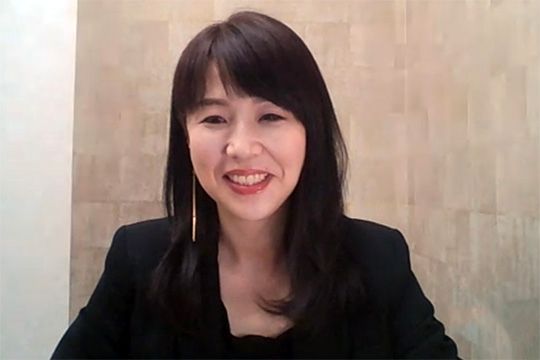

Chatani: So, you have ties to Southeast Asia, that is, Laos and Cambodia. In fact, KPMG Ignition Tokyo also has strong ties with these areas because we have many staff members who are from Southeast Asia, for instance, Cambodia, Myanmar, Thailand and Indonesia.
What’s interesting is that while people from the same country mostly speak in their native language when they gather for a meeting, members from India seem to use English because their native language is quite different depending on their area of origin.
Bun: That’s a very interesting sight. Also, your company is like a mass of diversity.
Chatani: Yes. Their backgrounds are very diverse, not only in terms of nationality but also in terms of professional orientation and career. Some of them come from the global IT industry, some have been in consulting firms and some have been in the world of academia. I think the diversity of our staff members is different from those in auditing or accounting at KPMG.
I recently attended a conference and, according to a presentation by a smart city researcher, "a city with little diversity is less likely to innovate.” This is certainly true because if diversity is not maintained, the composition will be "the majority vs. the rest." People who belong to "the rest" have no choice but to conform to the majority and accept the inconvenience.
A good example would be the "social life of left-handed people.” I’m also left-handed and when I hold my IC card in position at an automatic ticket gate, there are times when I inevitably lose my balance or it doesn’t go smoothly. As this is an unconscious action, I become perplexed at what happened.
Bun: There seem to be many cases in which awareness based on such things leads to innovation.
Chatani: I think so. By being diverse, we realize that there are many people who don’t feel comfortable with the standard way of thinking or doing things. In management as well, the diversity of backgrounds makes many people say, "I didn't know there was such an opinion!”
Bun: In my case, I feel that diversity is already packed inside me. Though there are more working women nowadays, there are still situations where we are in the minority compared to men. Managers themselves are also a minority even among men and an overwhelming minority when it comes to women managers. Moreover, it’s probably quite rare even among them to be running a business while being married and raising children. What’s more, while my nationality is Japanese, my roots are in Korea. So I guess I’m still a minority in Japan.
When you’re at the opposite end of the majority, there are many things you notice and I think that you’re more likely to focus on things that haven’t been in the spotlight before.
Chatani: Perhaps because of this, I hear that you’re often invited to appear on TV programs.
Bun: I’m sometimes asked to appear on information programs aired from noon to the evening. Those who are in charge of producing the programs often tell me, "Our audience is female but many of the members appearing in the program are male. So, when dealing with issues related to child-raising and women's bodies, there are many things they tend to be unaware of. I think you’d be able to easily notice things that the viewers are concerned about, so please give your opinions in these areas.”
I suppose it makes sense for someone like me to speak from the opposite end of the spectrum in order to create opportunities to address things that cannot be noticed by men alone. I’m also asked to provide my opinion from a managerial perspective.
What We Realize from Being Diverse May Lead to Business Opportunities
Chatani: Maybe this is because it’s easy to focus on things that have been overlooked before, but I heard that Losszero has been working on some interesting initiatives recently. I understand that you’re developing a BtoB platform and a subscription-type ordering system, where customers don’t know when and what will be delivered. Can you tell us about these services?
Bun: You’re talking about the "Futeiki Bin (irregular delivery)” service with which customers can enjoy food loss in a positive way.
I can say that developing e-commerce is my area of expertise, as I have long been making efforts to increase sales by training myself to firmly add value to products and "sell them by adding a yen’s worth, not by discounting a yen.”
I was using this experience to develop Losszero, but when I looked around, I gradually began to see e-commerce sites for food outlets and felt that "cheapness" was being pushed to the forefront.
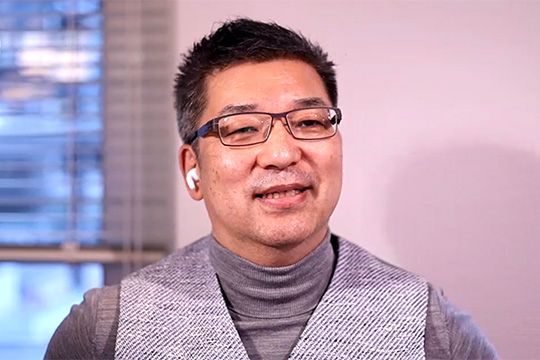
This made me think, "I don't want to get caught up in the competition to sell lots of products at a low price. People who are attracted by price will end up going away because of price.” I considered the essential point by thinking, “if we’re going to contribute to society by reducing waste, what kind of people should we work with?” Then, I began to call out to and work with people who handle premium products and have difficulty saying that they’re generating losses.
If we continue to sell products to consumers at low prices, we won’t be able to pay the producers sufficiently. This leads to a negative cycle and they would eventually think, "If we can only sell them at such a low price, let's throw them away.” Consumers therefore need to gradually break away from the idea that "products that are imperfect should be cheap.”
Our aim is to reduce food loss in a positive way based on the slogan, "We want to find value in things that are being wasted and turn them into smiles." So, we began to create content and focus on marketing activities to communicate the reasons why food loss occurs and to help customers understand the brand and the true intentions of our efforts before they buy the products.
For example, we don’t use expressions that could be perceived as "bargain" or "discount sales" at Losszero, but rather share the "Let's" worldview such as, "Let's eat up all the food.” Instead of appealing to the buyer to “Please buy them,” based on the premise of a seller-buyer relationship, we encourage cooperation between the three parties: the producers, Losszero, which delivers the producers’ feelings, and the customers who receive and eat the products.
We are trying to gradually expand consumer awareness by developing such content, placing a QR code on the paper inserted in the package of the delivered product so that people can read the content, and sending messages through newsletters and social media.
Chatani: I think it’s important for consumers to know that there are problems that are difficult to solve at food production sites and that they can take action to solve them. On the other hand, I feel that there is a tendency for consumers to think, "Can't companies do something about that using technology?”
Bun: That’s true. Nevertheless, the first step is to know that there is actually a problem and that someone has to do something about the current situation in order to be a sustainable society.
I also think that many customers have an inherent desire “to eat good food at a slightly discounted price.” Instead of pushing too hard to solve social issues, I think it’s okay to give a supportive push by saying, "It tastes good and although you may not have had the opportunity to buy it before, you can contribute to society just by eating it."
In fact, the market for services that address food loss is still in a state of disarray with no single startup reigning the market.
I guess we’re now in a period when we need to work steadily to create a culture of “choosing food that is delicious and has a positive effect on society at a somewhat special price.” By continuing to make such steady efforts, the company that has the most information or a worldview will be a strong presence when the market becomes truly mature.
Perhaps because they saw our efforts, we began to receive offers for collaboration from manufacturers whose names we cannot disclose, though they’re well known to many people.
However, it’s still impossible to eliminate all losses and, no matter how hard consumers try, it’s difficult for them to get hold of food that can only be sold through BtoB, such as the chocolate ingredients I mentioned at the beginning. We therefore decided to create a platform that connects vendors who have large quantities of ingredients that could become food losses with those who want to use them.
Also regarding “Futeiki Bin,” in response to the wishes of companies that “do not want to reveal their brand name but can’t bear to dispose of their products,” we have created a system where we can deal with sudden losses by controlling what to pack and when to deliver them so that customers can enjoy them as if they were grab bags.
If more people participate in subscriptions, we should be able to get more people to eat these foods even if we purchase a lot of food or have a sudden balance of supply and demand. I imagine that if technology can be incorporated here, it will be possible to come close to a zero loss smoothly by, for example, matching the timing when a surplus is generated on the part of food providers with the quantities needed by us.
With regard to the subscription system, we worked with Kawanishi City in Hyogo Prefecture on a project to "deliver delicious food to the homes of 5,000 medical workers in the city to bring them a moment of peace of mind while also saving food loss." This enabled us to acquire some insight regarding the size of the warehouse necessary for storing the products until shipment and the quantity that must be procured in a stable manner.
What we need to do now is to resolve the issue of incorporating technology for controlling food products.
Chatani: I guess this means that a platform for BtoB and a subscription model will be added to the existing e-commerce model. I was convinced that platforms and subscriptions would be the trend in digital utilization going forward.
Bun: That’s right. E-commerce will always bring in cash and stabilize our business but we cannot deal with food loss by using e-commerce alone. So, we’re just starting to focus on "selling in bulk" like in a grab bag, which would create a larger market. We would like to increase the amount of waste reduction in order to make a social impact.
Reducing Business Risks by Utilizing Digital Technology
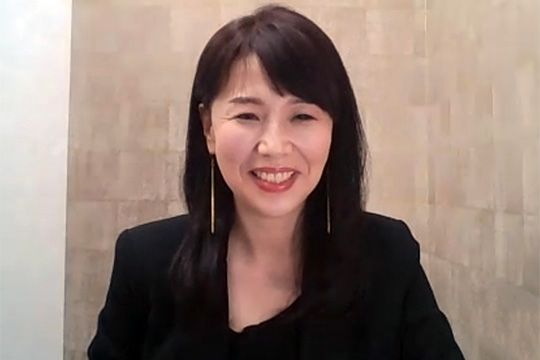

Chatani: Whether it's a new platform or a subscription model you're starting, I understand that there are improvements you'd like to make by leveraging technology. Do you plan to handle the development in-house?
Bun: We’re now starting to hire a few personnel but are still having outside subcontractors help us in some areas. If the scheme works well and the number of users increases from 1,000 to 10,000, we won’t be able to operate unless we develop an extensive program.
In the case of subscription, for example, we can give feedback such as suggesting “more chocolate for this person" or " more salty sweets for this person" based not on an analog judgment but on the data we receive, which will make our service more satisfying to our customers. We’d like to attract technology professionals and enough customer support to be able to realize this.
Chatani: So, this means that you’re also stepping into the area of data utilization.
In regard to data, we learned many things from the COVID-19 pandemic. I understand that in the food industry, demand forecasts based on past data became way off due to COVID-19 and generated food losses. I think this had a considerable impact on your business as well. Have you noticed any changes in the foods that are distributed?
Bun: What was symbolic was after the Lunar New Year in 2020. As a result of the border control, there were no tourists visiting popular destinations for inbound travelers, which generated a large surplus of souvenirs. After that, as the government encouraged people to voluntarily refrain from cherry blossom viewing, there was a huge surplus of cherry blossom sweets. As the manufacturers were making the sweets based on plans that had been drawn up already, they just couldn't stop production.
We therefore proposed trying not to generate losses in a positive manner by putting together campaigns such as, "Let's enjoy the mood of cherry blossom viewing at home.” After that, there was a surplus of crops and other products that are harvested in early summer. As the producers do not have their own sales channels and because it’s not practical for them to respond to a number of small orders individually, we tried to help them as much as we could.
We learned a lot from these experiences. We were also reminded of how much influence a discrepancy in demand forecasting can have and how much value is considered to decrease if something is "out of season" even by one day, especially in the case of major commercial events.
Chatani: Indeed, with the food surplus becoming a big issue due to the cancellation of various events, we have often come to hear the term "support consumption.”
While the COVID-19 pandemic was the trigger in the recent case, natural disasters always have an impact somewhere. It would be great if we could use digital technology not only to avoid losses but also to reduce the impact of such unforeseen events.
Bun: I agree. Especially during the pandemic, a manufacturer with a strong brand name told us, "We were developing our business by operating stores as a tenant in department stores. However, because of the government’s request to reduce business hours, we couldn’t sell our products at all the stores, which left us with a surplus. We keenly realized that there are risks involved in a one-legged business."
If they had had an e-commerce sales channel, it would have been helpful and would have helped them avoid such risks.
Chatani: There were many posts shared on social media saying that they were in trouble because of the large amount of products that had gone unsold and had nowhere to go, and many people were replying, "If there’s a surplus, I’ll buy them!”
I heard that there were posts in the comments section that people were interested in purchasing, and that some of the "people inside" the company were sending direct messages to those people to exchange information such as delivery address, desired quantity, and bank account information. In some cases the labor costs increased so much that the company ended up losing money.
Bun: That seems to be the case. Watching them, I thought "how smooth it would be if they had a website and could add a cart/payment function to it.” And even for producers that cannot provide such functions immediately, they would be able to overcome their problems with a minimum of effort if there were a platform that they could use somewhere. They would then be able to sell their products while they’re still fresh and delicious and solicit many supportive purchases by spreading information about the site through SNS (social network services).
Chatani: Yes, I agree. That could become an exchange market for avoiding wasting resources.
Environment that Boosts Role Models Is Necessary to Make the Most of Diverse Human Resources
Chatani: You have now devised a business scheme and put it on track, but until then, I understand that you had never been involved in "business.”
Bun: That’s right. Since my children were small and I couldn’t find a new job, I decided to start a small business that could be done at home, and this is how I started my business. At the time, I didn't even know the relationship between sales and gross profit or cost of goods sold.
Chatani: Based on your experience, how do you think future working styles and living styles will change, or how do you want to change them?
Bun: I learned from experience how to survive in the Rakuten market from scratch and launched Losszero after many twists and turns. In 2018, I had the opportunity to give a pitch deck presentation in Silicon Valley, USA, through a program called “APT Women” promoted by the Tokyo Metropolitan Government. I have since continued to give lectures abroad.
When I first started the company called Little Moon, mom friends around me were really worried. Not knowing the generalization that "90% of established companies later go out of business," I believed only in myself and a successful future and tried not to build mental walls on my own, which I think was a good thing.
If what you’re really aiming for is further ahead, it should be important to move forward by looking at things altruistically instead of being selfishly concerned about the details.
Women entrepreneurs especially face various obstacles such as "the eyes of the people around them," "the eyes of their families," and "what society expects of women as a matter of course.” Therefore, if you don't inspire yourself to keep going, you may end up small.
When I go to Silicon Valley, I’m told by local Japanese people, “Japanese women are too formal. You should break out of your shell more. You should promote yourself more and not be so small.”
While there is tremendous competition there, even those who have failed in several challenges are respected for their daring to try. When I look at this culture of Silicon Valley, I feel that it’s important to be able to take on challenges even if they fail.
If many role models of daring efforts are created in this way and if living styles in the world, especially those of women, become more diverse, I feel that society will change in some way.
We sometimes hear comments such as, "Small businesses have low annual sales and a low perspective," but I don’t think making millions of dollars a year is what it’s all about. I think the choice of entrepreneurship can be considered a good fit for women in the sense that they can control the way they live and work.
Chatani: Professor Hiroyuki Morikawa at the University of Tokyo, with whom I previously had an interview, said, "Changes will naturally occur even at large companies but it’s women who will be the key persons at such times.” It seems that trying to see, think and do things that had been mainly done by men from the viewpoints of women will lead to a diversity of role models. (Reference article: “What Kind of Transition Will DX Go through until It Becomes a Part of Society?: Hiroyuki Morikawa, Professor, School of Engineering, The University of Tokyo x Masayuki Chatani, KPMG Ignition Tokyo)
Bun: I truly think so. Even today, there are generations that think that going to a good university and getting into a listed company on the first section of the Tokyo Stock Exchange is a shortcut to happiness, but I often feel that this has become a "parental block" that prevents young and fresh dreams and challenges.
Not only that, there are also many other issues that are becoming more and more apparent, especially among young people today, such as anxiety about finding a job and a marriage partner, what if both partners do not have a stable income and, if they were to have children, would they be able to continue their careers so that they would have enough money to raise them? When we see this in front of us, we sometimes feel that we should give up or that it’s an insurmountable barrier.
I have made it my mission in life to make the most of minorities, or to take it a step further, to make the most of the existence that has become a state of mottainai (waste).” I think this ultimately came from the fact that I was on the minority side and felt that “I wanted someone to find me.”
I’m sure that even now, various people look around them from their own standpoints and feel, “it must be tough to find a new job” or “I won’t be able to return to society anymore.” Though I’ve been focusing on "mottainai" food, I’d like to shine a light on people that "it would be a waste to let sit there!” and allow them to work actively in a place that suits them.
Profile of Interviewee
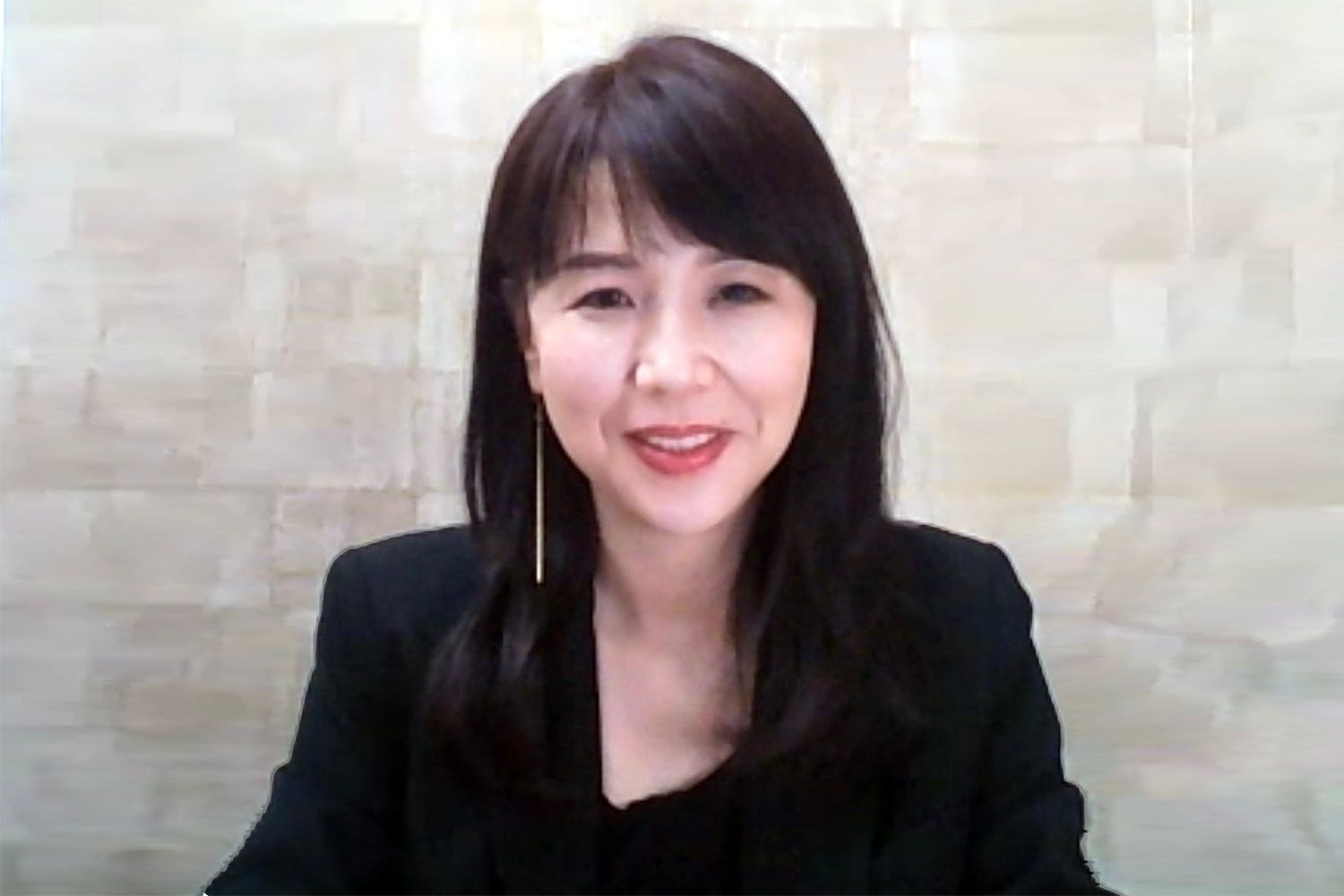

Mitsuki Bun
Founder and CEO, Losszero Co., Ltd.
Mitsuki Bun graduated from the Faculty of Economics, Doshisha University, and became a homepreneur after going through marriage, childbirth and working as a full-time homemaker. She has sold 4.8 million hair accessories via e-commerce and was awarded Rakuten Ichiba’s Shop of the Year, which is given to fewer than the top 1% merchants, three times. Since 2010, she has been collecting unused hair accessories and has donated 40,000 accessories to 10 countries worldwide while supporting their vocational programs.
Based on her experience of making use of wasted products, she focused her attention on food loss and launched “Losszero Co.,Ltd.” in 2018. The company shares food products that are bound to be wasted via e-commerce and sells food products that are “upcycled” from high-grade chocolates, which were being disposed of without being used, directly to customers. She is also collaborating actively with big corporations and local governments.
She received the “Food Industry Mottainai (stop waste) Award” Special Award from the Ministry of Agriculture, Forestry and Fisheries in 2020 for achieving a reduction of one ton of food waste per day during the COVID-19 pandemic.
Follow us on KPMG Ignition Tokyo LinkedIn for the latest news.
Connect with us
- Find office locations kpmg.findOfficeLocations
- kpmg.emailUs
- Social media @ KPMG kpmg.socialMedia



